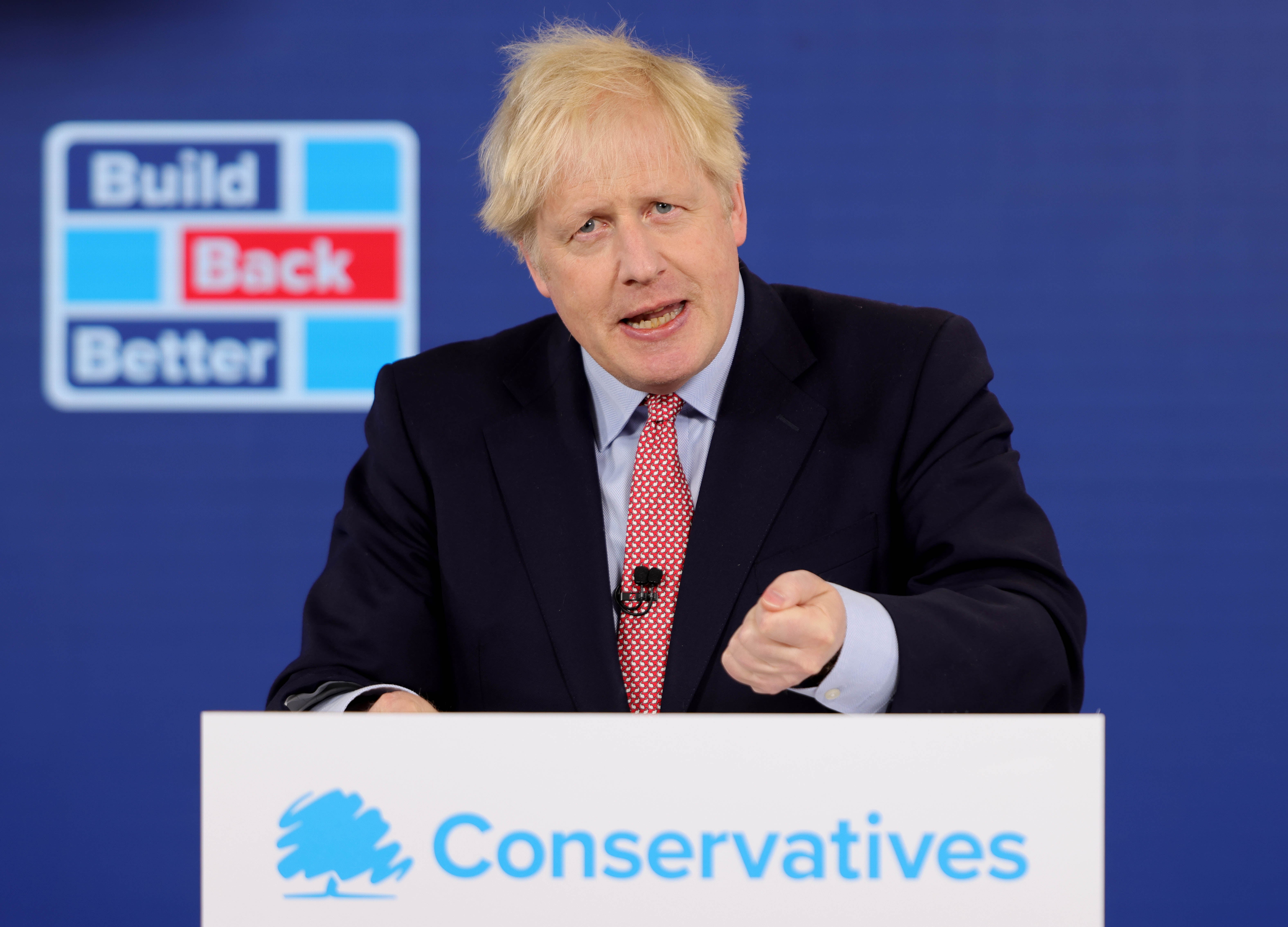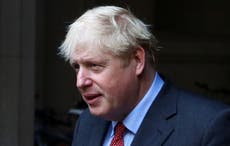We’re heading for a housing crash – and Boris Johnson just made it worse
After a crisis caused by trillions of dollars pumped into an unsustainable bubble, our government seem intent on giving it a few last puffs, writes Ben Chapman


Few television programmes can be as depressingly upbeat as Homes under the Hammer. It's not the dated music, formulaic structure or the cheesy, lobotomised chirpiness of its presenters.
It's the fact that, every weekday morning, for 1,000 episodes now, it has nonchalantly exposed the glaring absurdity at the heart of UK economy, apparently without even realising.
I'm not suggesting that a daytime TV show is responsible for the housing crisis. But Homes under the Hammer did start in 2003, which, coincidentally, was roughly when the UK property market finally ceased contact with objective reality, consigning a generation to insecure renting.
For 17 years since, a rolling cast of would-be property developers have enjoyed their 15 minutes of fame telling pinstriped estate agents how they made their fortunes flipping run-down terraced houses.
On a basic level, we know something feels intuitively odd about this. Why do we live in a country where people make so much money by covering the nation's properties in cheap laminate, magnolia paint and faux leather sofas – then renting them out to people who can’t afford to buy their own?
Can this really be more valuable than, say, being a civil engineer or starting a business that makes something or provides a service?
Is it just an immutable law that house prices always rise? Or have we created a system with fundamental flaws?
Figures out this week give credence to the latter view. They should cause alarm, but the government seems to have its fingers its ears.
Despite a catastrophic recession, a global pandemic, the looming prospect of mass unemployment and huge disruption to trade, average house prices jumped 7.3 per cent in the past year – far more than wages.
Meanwhile, Boris Johnson unveiled his plan to turn generation rent into “generation buy” – a slogan that hides a barely fleshed-out plan, apparently to subsidise 2 million low-deposit mortgages with public money.
To understand this phenomenon, and why the government's plan will make it worse, it's necessary to confront two fundamental myths about the housing market and the financial system that props it up.
First, the pervasive myth that high prices are caused by a shortage of supply. This is not true, no matter how many times it is repeated. Supply rose last year at its fastest rate for three decades, yet prices shot up.
While supply and demand are important factors in determining price of anything, in the housing market an over-riding factor is the cost of debt, because property is the one purchase that almost all ordinary households fund largely with borrowing.
According to Bank of England research, the fourfold increase in house prices since the 1980s can be explained almost entirely by falling real interest rates. Cheap money means expensive houses.
Markets now think the economy is going to tank, so rates are forecast to stay low, meaning banks are continuing to offer cheap mortgages - particularly for those with a big deposit. Along with a cut in Stamp Duty, this has helped push up house prices further.
The second myth is that banks are responsible stewards of money; financial intermediaries channelling idle savings into profitable investments.
In reality, banks are more like debt factories, creating money out of nothing. They don't look at their deposits to see how much they have left to lend then think who might make best use of it. They simply create as much money as they are allowed to under the rules and lend it out to the most profitable borrower.
They simply tap a number into a computer and it's in your account as a debt to the bank.
Because of ludicrous rules supposedly designed to make banks safer, it’s much more profitable for banks to lend against the value of a “safe” asset like a house than it is to lend to a company that wants to expand. Property asset bubbles are built into the system.
The vast majority of money that UK banks create is for assets or financial transactions. In other words, it does not expand the nation’s productive capacity by, for example, funding education or research, it merely inflates the value of assets that already exist.
This has created a £7 trillion housing market that fails to construct affordable homes and gives a huge, unearned windfall to those who joined in the game first – some of them are part-time developers of Homes under the Hammer fame, others are simply homeowners born at the right time who’ve now cashed in their chips.
To all intents and purposes, the UK housing market is a pyramid scheme reliant on ever-increasing prices.
This can’t continue forever, but successive governments and central bankers have done their best to try and keep the music going long after the party should have ended, and they may well keep it going for a while yet.
At some point rates must rise, the cheap money tap will turn off and homeowners, banks and the country will have a problem.
And yet, at this point, the government plans to provide 95 per cent LTV mortgages, adding tens of billions of pounds more debt, probably backed by the public, (though we don’t know yet as Boris Johnson hasn’t said) to an already colossal pile.
This would effectively protect banks by putting taxpayers first in line for losses when house prices fall. It will not result in more affordable homes being built.
The approach taken by recent governments has also meant years of missed opportunity. At the low rates available for much of the past decade, governments could have borrowed to expand the productive capacity of the economy, to boost skills, develop infrastructure and build publicly-owned housing.
Then, as the economy picked up and wages rose the Bank of England could have taken its foot off the throttle and increased interest rates, returning the property market slowly to planet Earth.
Instead, the government chose to slash spending on public services and is now ready to get the chequebook out to underwrite a further splurge on housing debt.
So we are left with the absurdity that, a decade after a crisis caused by trillions of dollars pumped into an unsustainable bubble, our government and central bankers seem intent on giving it a few last puffs just to make sure it bursts as catastrophically as possible.
That won’t be tomorrow, it may not even be next year, but it has to happen.




Join our commenting forum
Join thought-provoking conversations, follow other Independent readers and see their replies
Comments